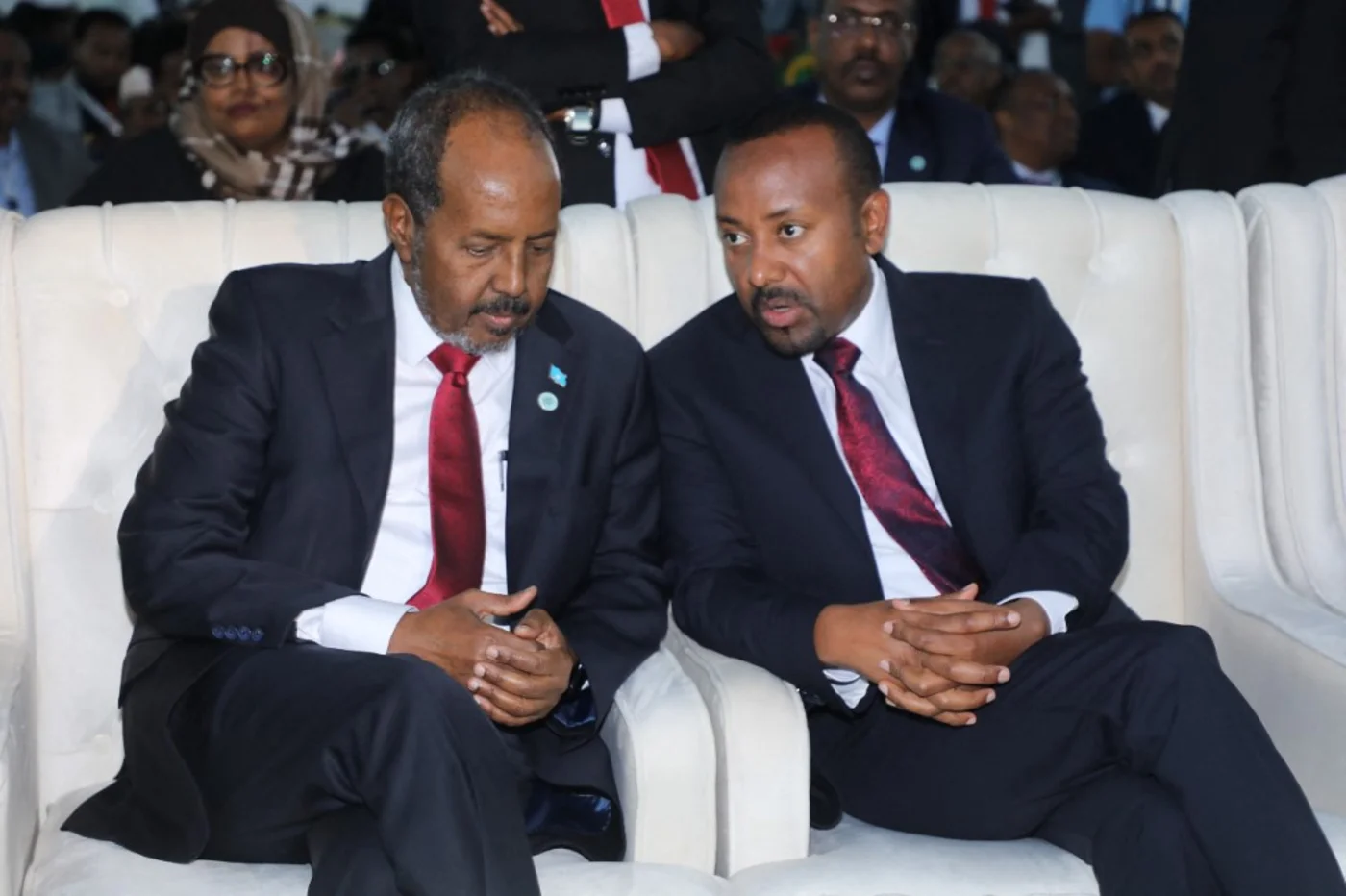Mogadishu, Somalia (AQRI.net) — Somali President Hassan Sheikh Mohamud and Ethiopian Prime Minister Abiy Ahmed are set to meet in Ankara on Tuesday for critical talks aimed at resolving tensions over Ethiopia’s controversial deal with Somaliland.
This marks the first face-to-face meeting between the two leaders since Addis Ababa struck an agreement granting access to Somaliland’s Berbera Port in exchange for potential recognition of Somaliland’s independence. Somalia has vehemently denounced the deal, calling it a violation of its sovereignty, while Ethiopia insists it serves its strategic interests without breaching Somalia’s territorial integrity.
Tensions Surrounding the Somaliland Agreement
The Ethiopia-Somaliland deal has deepened the rift between the two nations. Somaliland, a self-declared independent territory that broke away from Somalia in 1991, remains unrecognized internationally. Mogadishu views Somaliland as an inseparable part of Somalia and has consistently opposed any moves that appear to legitimize its independence.
Adding fuel to the fire, Somalia has accused Ethiopia of arming factions in Kismayo to destabilize relations between the Somali federal government and the Jubaland administration. Ethiopian officials have not responded to these allegations, while Jubaland leaders have dismissed them as baseless.
Turkey’s Role as Mediator
The Ankara talks, hosted by Turkish President Recep Tayyip Erdogan, highlight Turkey’s expanding role as a mediator in the Horn of Africa. This is the third round of negotiations Turkey has facilitated, although previous discussions have yielded limited progress.
Turkey has significant stakes in Somalia, including defense and economic partnerships. A recent naval agreement between Ankara and Mogadishu to secure Somali waters and Turkey’s energy exploration along Somalia’s coastline underscore their close ties. Ethiopia, too, has benefited from Turkey’s military support, including drone technology, which played a decisive role in its conflict with Tigray forces.
Broader Regional Implications
The Horn of Africa’s strategic location at the crossroads of the Red Sea and the Indian Ocean amplifies the stakes of these talks. Ethiopia’s alignment with Somaliland has also drawn sharp criticism from Egypt, a long-time adversary over the Grand Ethiopian Renaissance Dam. Somalia’s growing ties with Egypt and defense agreements with Tanzania signal a broader regional realignment aimed at countering Ethiopia’s influence.
Political analyst Ahmed Yusuf told AQRI.net, “The Horn of Africa’s geopolitics is a delicate balance. A misstep in these negotiations could have lasting repercussions across the region.”
High Stakes for Both Nations
President Mohamud has made it clear that Somalia will not entertain any agreements with Ethiopia until Addis Ababa officially recognizes Somalia’s sovereignty over Somaliland. Analysts suggest a potential compromise could involve Ethiopia withdrawing from its Somaliland agreement in exchange for access to Somali ports closer to its border.
Conclusion
As the Horn of Africa navigates an increasingly complex geopolitical landscape, the Ankara talks represent a pivotal moment. Whether the negotiations succeed or falter, the outcome will likely shape the future of regional stability and Somalia-Ethiopia relations.
